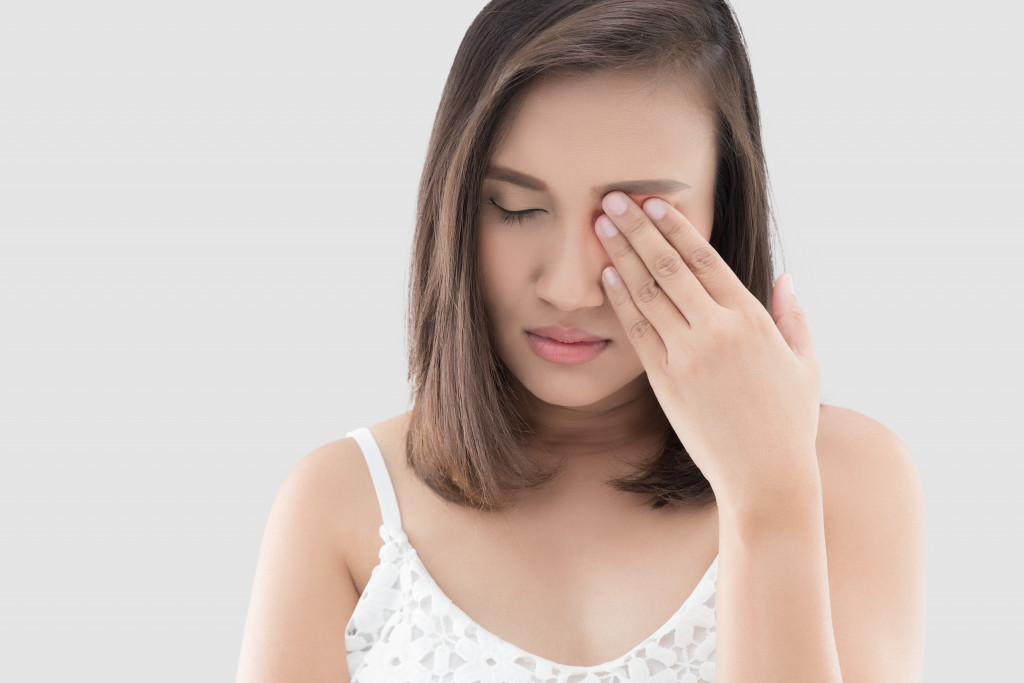Disclaimer: This website provides health information for educational purposes only and is not a substitute for professional medical advice, diagnosis, or treatment. Always seek the guidance of a qualified healthcare provider with any questions you may have.
Just like the rest of your body, your eyes can feel irritated and tired following intense activity. It can be driving a car, reading a book, or using your devices for a long time. A condition like an eye strain is pretty common for people who are primarily working with digital technology. Others call it digital eye strain or computer vision syndrome.
Many work-from-home individuals are experiencing eye strain due to long hours of viewing their screens. The usual symptoms include blurry vision, pain in the back or neck, irritated or dry eyes, and headaches. If ignored, that simple eye tiredness can affect your concentration and productivity. Read on to know the best eye care tips for work-from-home employees like yourself.
Get a regular eye test
There are different tests and exams your doctor may recommend depending on your current eye health. For instance, there’s the visual field test, which is often used to detect signs of glaucoma. On the other hand, visual acuity test is typically used to check how well a person sees at various distances. You take this test when getting prescription glasses.
Your doctor may also recommend an upright and open MRI test to confirm their diagnoses of eye problems like optic neuritis. Such tests also help in the detection of ocular abnormalities. Other examinations you may need are a color vision test, retinoscopy, keratometry test, and a refraction test.
Adjust your lighting
The second thing you need to worry about is the lighting in the room. If your light is too dim or too bright, your eyes are more likely to get tired. Your screen should be properly lit, so you won’t have to squint or get blinded by bright light. You can also use an antiglare coating and remove other light sources that hit the screen to reduce glare and work in comfort.
As for the room’s lighting, you can control the excessive sunlight by using blinds or curtains. It’s also better to use a lamp instead of working under a large fluorescent lamp. Don’t place your computer in front of a white wall or bright window too. If you’re reading at your desk, the light source should be positioned in front of you.

Block the blue light
Digital screens produce blue light, which can cause eye strain. You can experience dry eyes, blurry vision, and headaches if you use digital screens for many hours every day. Blue light is close to ultraviolet light and can damage vision over time. If you can’t avoid using digital devices all day, get glasses with blue light blocking technology.
The same goes for prescription glasses. You can also consider using blue light filter features on your smartphone or computer. Apart from causing eye strain, blue light can also impact the quality of your sleep as it can overstimulate your brain cells. Experts suggest no screen time at least two hours before bedtime.
Use the 20-20-20 rule
Another easy way to prevent eye strain when working at home is the 20-20-20 rule. This is fairly easy to remember too. Basically, you need to take a 20-second break and focus on something 20 feet away every 20 minutes of working. This gives your retinas enough break from harsh digital light and focuses your eyes at different focal lengths. Plus, this is a more effective technique if you’re working at home. Doing it in the office cubicle may not be that effective as the walls are typically just a few feet away.
Blink more frequently
This advice might sound obvious as blinking is actually an involuntary action. On average, a person blinks about 15 times per minute. However, it’s best to try to blink more when you’re in front of the screen. Researchers found that a person using digital screen devices or computers only blinks around five to seven times.
Blinking is a way for your eyes to take care of themselves, and it produces moisture. The fewer times you blink, the higher chance you can experience eye irritation and dryness. Some cases also result in reduced vision, loss of focus, and discomfort. In short, it can also impact your daily performance.
While eye strain doesn’t have permanent consequences or can’t lead to eye damage, it’s still best to consult a specialist for advice. They can recommend the best habits and treatment you need to relieve eye tiredness. If you’re struggling with vision problems, immediately book an appointment with an eye specialist to know the real reason. Eye strain may not permanently affect your vision, but your bad eye care habits might lead to eye damage. Stay informed about your health!




